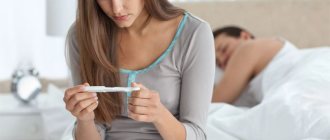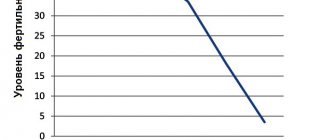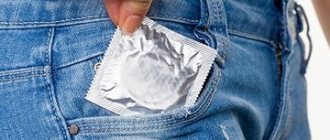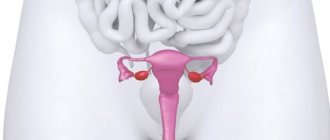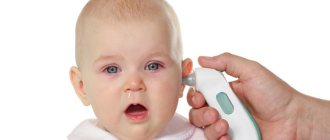What is the chance of getting pregnant during and after ovulation?
A woman's menstrual cycle consists of three phases, differing in processes and duration. The shortest phase is ovulation, it begins around day 15 and lasts approximately 1 to 2 days. During this time, the mature egg leaves the ovary and, passing through the fallopian tube, enters the uterine cavity. The probability of getting pregnant during ovulation is very high, so many women try to keep special calendars so as not to miss the favorable moment.
Once a woman has determined her ovulation date, she can plan days of unprotected sex. This may happen a few days before the expected date or on that day.
Probability of conception
To increase the chances of pregnancy, a woman should have sex without using contraception for 2-3 days before and during ovulation. Sexual intercourse on any of these days increases the possibility of fertilization by 20-30%.
Below is a list of tips that will help increase the chances of a planned pregnancy:
- regular sexual intercourse without the use of contraceptives (sex every 2-3 days);
- complete cessation, maternal and paternal cessation of smoking, or reduction to a minimum number of cigarettes smoked per day. Tobacco use reduces reproductive function and negatively affects the health of the embryo and fetus.
- alcohol restriction. Drinking alcoholic beverages reduces fertility in both sexes and also harms the fetus;
- maintaining normal weight. Women who are obese or underweight are more likely to experience irregular ovulation.
However, only a doctor can assess the general health of the couple and the woman’s readiness to bear and give birth to a child. The doctor also determines methods for increasing the likelihood of conception individually for a man and a woman.
What is the probability of getting pregnant after ovulation?
If a woman has already ovulated, then to successfully conceive a child she will have to wait for the next egg, that is, the next monthly cycle. From a medical point of view, the chances of getting pregnant after ovulation are slim. This is explained by the fact that a mature egg, if not fertilized within 24 hours, is simply destroyed. Pregnancy is possible in rare cases when late ovulation occurs.
The exact date of release of the egg from the ovary can be determined using special online calculators, of which there are many on the Internet. In order to use this service, you need to indicate the duration of your menstruation. Despite its simplicity and accuracy, it is recommended to use this calculator if there are no problems with the stability of the monthly cycle.
To understand the probability of getting pregnant on the day of ovulation, you can use the basal temperature chart, which is compiled based on daily readings.
There are cases when pregnancy does not occur after ovulation. Then the question arises - what's wrong? In fact, there can be many reasons, most often the culprit is the hormonal system, which does not produce the amount of hormones necessary for conception.
Recommendations
So how to get 100 percent pregnant? For the highest probability of fertilization, combine several methods for calculating fertile days. For example, when using the temperature measurement and testing method, you will definitely not miss an auspicious day.
You can also combine research with an ultrasonic sensor with a calendar method of counting.
In order to increase the likelihood of conception, it is necessary to take breaks from sexual intercourse. You shouldn’t try every day, much less several times a day. With each ejaculation, the number of male cells in the sperm decreases. It is better to choose a certain tactic and have sexual intercourse every other day.
After ejaculation, do not jump up immediately. Lie down for a while and let the sperm penetrate as deep into the uterus as possible.
If pregnancy has not occurred after one year, you should consult a doctor. Perhaps the doctor will order some tests for you and your partner and find out the reason for the lack of pregnancy.
View gallery
During the period of ovulation, pregnancy did not occur - why?
Knowing what chance there is of getting pregnant during ovulation, a woman gets upset when this does not happen. Could there be errors in the calculations or is the reason due to health conditions? To understand why such situations happen, it is recommended to pay attention to the following points:
- Perhaps there was no ovulation. One miscalculation on the calendar is not enough. If a woman has a regular cycle, then it is worth checking the correctness of this calendar through an ultrasound or a special test. The absence of this natural process can be explained by hormonal imbalances, stressful situations or the presence of inflammatory diseases. Also, ovulation does not occur immediately if a woman has experienced a frozen pregnancy;
- Unsatisfactory maturation of the egg. Even a healthy woman once a year may encounter a situation where the egg does not mature. If after giving birth a woman’s menstrual cycle has not normalized and she is still breastfeeding, then it will be almost impossible to get pregnant during this period;
- Poor sperm quality can also be a reason for failure to conceive during ovulation. If there is a suspicion of this situation, then the man will need to take a spermogram to detect the number of active sperm in 1 ml of semen;
- Incompatibility of an immunological nature. Perhaps the egg and sperm cannot meet due to antibodies that are present in the cervical mucus. In such cases, the sperm of a particular man may be rejected;
- Before asking what is the probability of getting pregnant during ovulation the first time, a woman needs to make sure that she has no gynecological diseases. Sometimes pathologies such as inflammation of the ovaries, polycystic disease and obstruction of the fallopian tubes can be an obstacle to conception. If such problems are not eliminated, it will be extremely difficult, and sometimes even impossible, to get pregnant;
- Answer the question “what is the chance of getting pregnant on the day of ovulation after a stressful situation?” not difficult. Due to an unsatisfactory psychological state, doctors often diagnose false infertility. If a woman really wants to become a mother, she should be calm and try not to get nervous over trifles
If there is a strong desire to conceive a child, a married couple should have unprotected sex a few days before the release of the egg and during its release. In such a situation, the thought of what is the probability of getting pregnant during ovulation will not give rest, especially to a woman. She will listen to the slightest changes in her body and believe in folk signs. To reassure yourself, you need to know what symptoms of pregnancy after ovulation may be
Tracking emissions
Another way to determine fertile days. Many women wondering how to become 100 percent pregnant are advised by their doctor to monitor their discharge. And indeed, the consistency and intensity of the fluid coming out of the genital tract changes throughout the cycle.
In the days closest to ovulation, a woman feels that the vagina becomes moist and the discharge becomes stretchy. Many representatives of the fair sex note that this liquid is similar to raw white of a chicken egg. It is colorless and odorless. It is in this mucus located in the vagina that male sperm can survive for up to five days.
Immediately after the end of favorable days, the nature of a woman’s discharge changes dramatically. They become less abundant and thicken. Their appearance resembles a thick cream. Also, the discharge may turn white, but still have no odor.
View gallery
Symptoms of early pregnancy diagnosis
It must be said right away that the signs for early diagnosis of an “interesting condition” will be vague, so they can be confused with another pathological condition:
- Cramping pain in the lower abdomen. If ovulation has already passed, then in the event of fertilization of the egg, pain may be felt, moving from the lower abdomen to the side;
- Breasts may become swollen and painful, but this may be normal for women during the luteal phase;
- If one week has passed after ovulation, light bleeding may appear. Doctors call this condition implantation bleeding. It occurs during the period of attachment of the fertilized egg to the walls of the uterus;
- Toxicosis is unlikely to appear after ovulation, but bloating and excessive gas pollution in the intestines should alert you.
The surest way to detect early pregnancy is basal temperature. After increasing during ovulation, it will remain unchanged, that is, high.
Regardless of the chance of getting pregnant during ovulation, you can find out the exact result only after a few days of a missed period.
What thickness of the endometrium is needed for implantation?
Many doctors believe that 8-10 mm is a bad endometrium. But for successful embryo implantation, 6-7 mm of endometrium is sufficient.
Ovulation occurs. Progesterone plays the main role. It does not affect the thickness of the endometrium in any way. It makes it "juicy". Causes secretory changes in it, affecting the glands. It creates the best conditions for implantation (6-7 days after ovulation). The endometrium does not grow after ovulation. Progesterone deficiency cannot cause infertility.
If implantation does not occur, the glands stop secreting, and degenerative changes occur in the endometrium. The level of estradiol and progesterone decreases, as a result of which the functional layer is rejected. The first day of menstruation begins.
When does chest pain occur?
In parallel with conception, the breasts enlarge, because... glandular tissue grows. This gives a feeling of pain due to compression of blood vessels and nerve endings.
Obese women feel more discomfort than thin women. But the connective tissue in the breast after conception is not affected, it does not increase.
The growth of existing glandular tissue in the breast is accompanied by the formation of new glandular lobules. It is elevated progesterone that causes chest pain.
On what day after conception do chest pains appear? Unpleasant sensations and pain in the chest appear within the first 2 weeks after fertilization, and when exactly depends on the moment of fertilization in the menstrual cycle.
No one will tell you the exact date, everything is too individual. The pregnancy hormone progesterone begins to increase rapidly.
His task is to preserve the pregnancy and create all conditions for it. At the same time, the corpus luteum begins to produce the pregnancy hormone - hCG (human chorionic gonadotropin).
It is designed to suppress the mother's immune system so that it does not start to fight with the embryo, mistaking it for a foreign body, and does not begin to produce antibodies against it.
If antibodies begin to form, the embryo will be rejected. In addition, hCG stimulates the growth of glandular tissue in the breast, which is marked by its enlargement.
Such a huge amount of work in the body leads to the fact that a woman begins to feel nausea, weakness, pain in the chest and abdomen in the morning.
